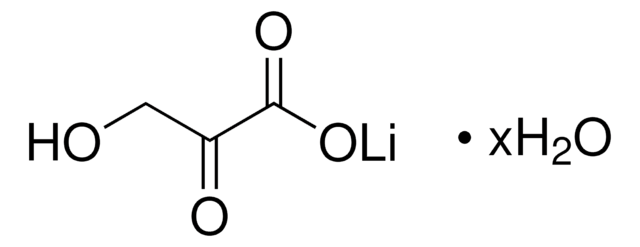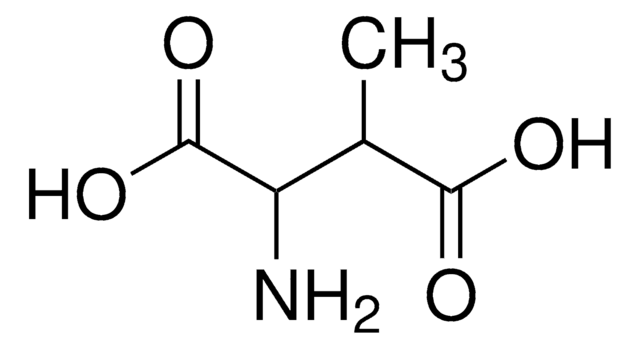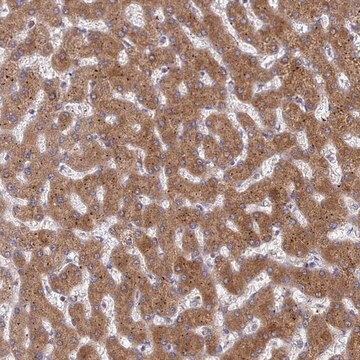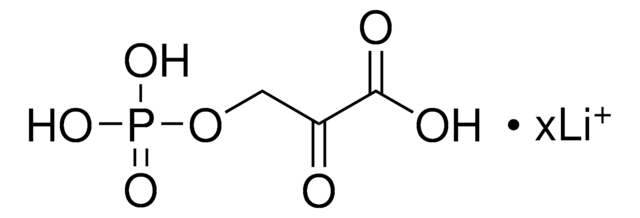06367
Sodium β-hydroxypyruvate hydrate
≥97.0% (calc. based on dry substance, NT)
Synonyme(s) :
β-Hydroxypyruvic acid sodium salt, 3-Hydroxy-2-oxopropionic acid sodium salt
About This Item
Produits recommandés
Niveau de qualité
Pureté
≥97.0% (calc. based on dry substance, NT)
Forme
powder
Impuretés
~1 mol water
Application(s)
clinical testing
Format
neat
Température de stockage
2-8°C
Chaîne SMILES
OCC(C([O-])=O)=O.O.[Na+]
InChI
1S/C3H4O4.Na.H2O/c4-1-2(5)3(6)7;;/h4H,1H2,(H,6,7);;1H2/q;+1;/p-1
Clé InChI
KSEDNTCSZJLSFJ-UHFFFAOYSA-M
Catégories apparentées
Actions biochimiques/physiologiques
Code de la classe de stockage
11 - Combustible Solids
Classe de danger pour l'eau (WGK)
WGK 3
Point d'éclair (°F)
Not applicable
Point d'éclair (°C)
Not applicable
Équipement de protection individuelle
Eyeshields, Gloves, type N95 (US)
Certificats d'analyse (COA)
Recherchez un Certificats d'analyse (COA) en saisissant le numéro de lot du produit. Les numéros de lot figurent sur l'étiquette du produit après les mots "Lot" ou "Batch".
Déjà en possession de ce produit ?
Retrouvez la documentation relative aux produits que vous avez récemment achetés dans la Bibliothèque de documents.
Les clients ont également consulté
Notre équipe de scientifiques dispose d'une expérience dans tous les secteurs de la recherche, notamment en sciences de la vie, science des matériaux, synthèse chimique, chromatographie, analyse et dans de nombreux autres domaines..
Contacter notre Service technique









